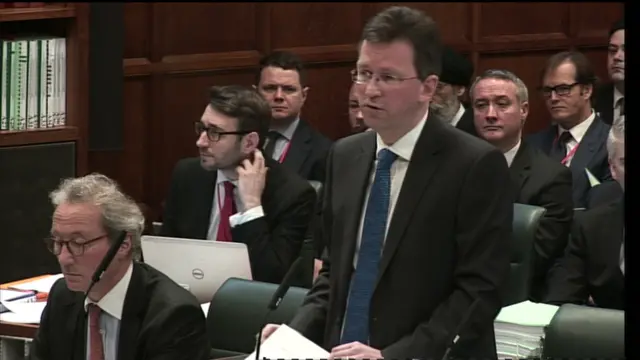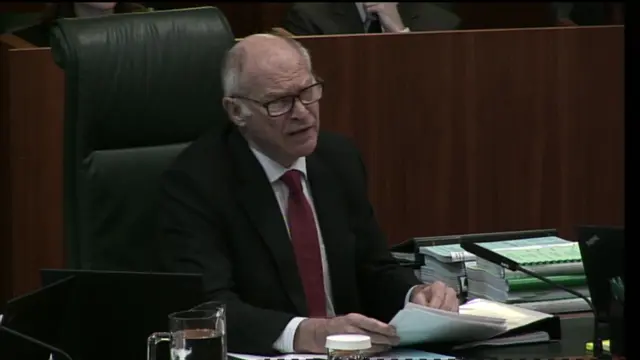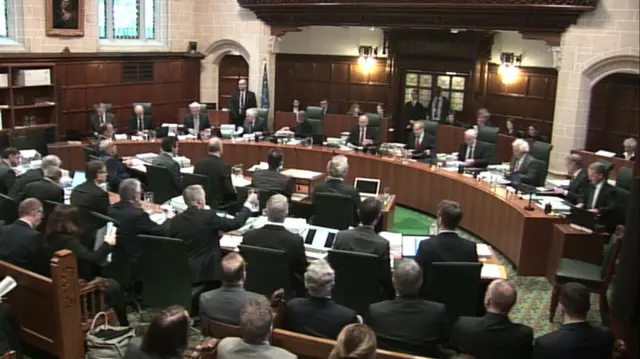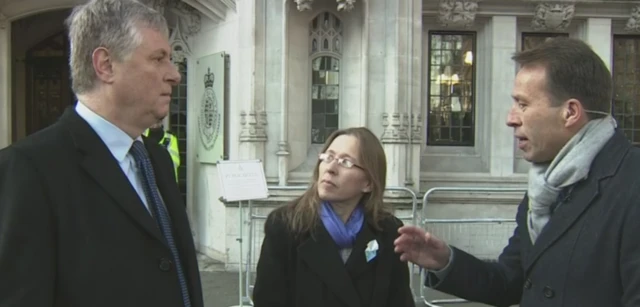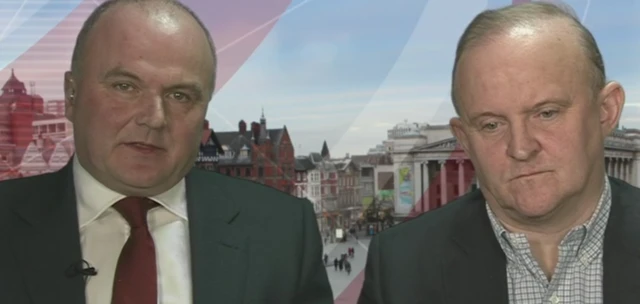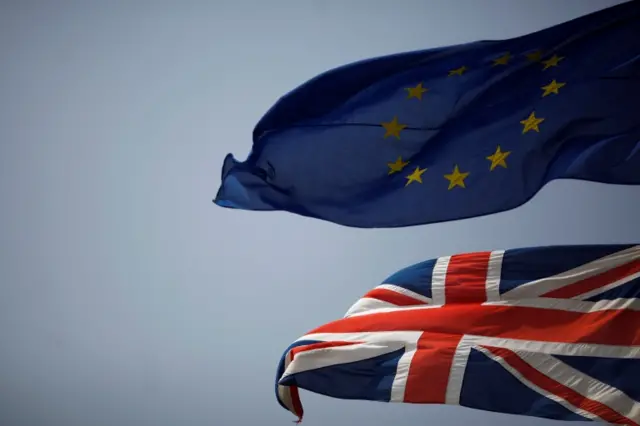Prerogative powers did not come 'out of blue sky'published at 11:34 GMT 5 December 2016
We are already getting into quite detailed legal and constitutional arguments, only briefly interrupted by someone sneezing in the courtroom.
Attorney General Jeremy Wright, for the government, says that Parliament has had multiple opportunities when passing legislation on the EU and other constitutional matters to circumscribe the government's executive powers, but it did so "only sparingly and explicitly".
To make his point, he runs through all the legislation passed in recent years on the EU, focusing on the 2015 Referendum Act - adding that Parliament is "sovereign" to impose whatever controls it wants on prerogative powers.
Parliament has the right to stand up for itself, he insists, and that despite having the "full capacity and multiple opportunities" to limit the executive's powers in this regard, it had decided not to do so.
In language that you might expect to hear in Parliament rather than a courtroom, Mr Wright said the prerogative power did not emerge "on a whim or come out of a blue sky" but had been "deliberately and definitively" granted to governments by successive Parliaments over the years.
